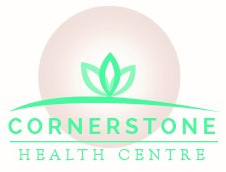Normal Degeneration Linked with Georgetown Spinal Stenosis
Normal degeneration of the spine may seem odd when talking about degeneration, but age encounters us all. Age generates degeneration normally. Our Georgetown chiropractic practice recognizes and respects age for its effect on the spine and its role in disc degeneration and paraspinal muscle degeneration. They go hand-in-hand. Dr. Butwell treats them gently and successfully, particularly when our patients do their part in coming to appointments, exercising, and taking supplements that can help. It’s all part of our Georgetown chiropractic treatment plan!
NORMAL DEGENERATION: Age
Age. Not a topic we enjoy talking about, but age doesn’t mind. It keeps doing what it does. Age played a considerable role when researchers compared the fatty infiltration of muscle in normal people to that in patients with lumbar spinal stenosis who were matched for age, BMI, weight, etc. The paraspinal muscle changes in lumbar spinal stenosis patients and normal people were comparable. Degeneration of these muscles related to age was more obvious in lumbar spinal stenosis patients particularly in the multifidus muscles. (1) A radiographic study of degenerative lumbar spinal stenosis found age-related risk factors. Researchers wrote that larger intervertebral disc height and more severe vertebral endplate failure may trigger degenerative lumbar spinal stenosis because of the amplified mobility of the segment, furthering disc degeneration. Weakened paravertebral muscles may weaken lumbar spinal stability. (2) Indeed, the spine and all its muscles are linked. Dr. Butwell looks at them all, to their response to treatment, to their role in the pain.
BACK PAIN AND ITS PALS
Low back pain has friends. It brings with it degeneration, change, fat, imbalance and more. Researchers adknowledged intervertebral disc degeneration as being the main cause of chronic low back pain. It’s a familiar and recuring condition in spine surgery fields. Disc degeneration is associated with disc inflammation which makes sense since it is avascular tissue. As we humans age, researchers pointed out that its bone marrow changes to bone marrow fat, triggering an inflammatory response in the disc and paraspinal muscles which play a role in spine stability. As the muscles fill with fat, low back pain transitioned to chronic. (3) In a study of patients with lumbar spinal stenosis and sciatica/leg pain, researchers described that lumbar degenerative diseases caused paravertebral muscle degeneration with higher levels of intramuscular fat infiltration. Women’s paraspinal muscles were significantly smaller. The erector spinae muscle and multifidus muscle in older aged patients were described as having more fat in them. (4) Dr. Butwell realizes that aging plays a role in back pain’s development, path, and treatment.
LESS IS MORE: Treating Aged Back Pain
Since researchers documented that with age comes fatty infiltration of paraspinal muscles and inflammatory responses in the disc, it is logical that doing less if back surgery is done would be wise. A new study wrote that adding fusion to a decompression back surgery for lumbar spinal stenosis heightened the odds of new stenosis on an MRI two years later at the operated level or at an adjacent spinal level even when spondylolisthesis (a condition that one vertebra slipped on another one) was noted at surgery. (5) Less is more frequently when managing back pain. Gentler treatment can go far in decreasing pain. That’s the motto of the CTFDD treatment plan at Dr. Butwell: gentle spinal manipulation, gentle exercise, etc.
CONTACT Dr. Butwell
Listen to this PODCAST with Dr. Joseph Beissel on The Back Doctors Podcast with Dr. Michael Johnson as he illustrates the relief with The Cox® Technic System of Spinal Pain Management for a patient with chronic low back pain.
Make your Georgetown chiropractic appointment soon. There’s no escaping age or its accompanying pal, degeneration. If disc degeneration and spinal muscle degeneration are now your pals, trust Dr. Butwell to set you all on a path of healing.

